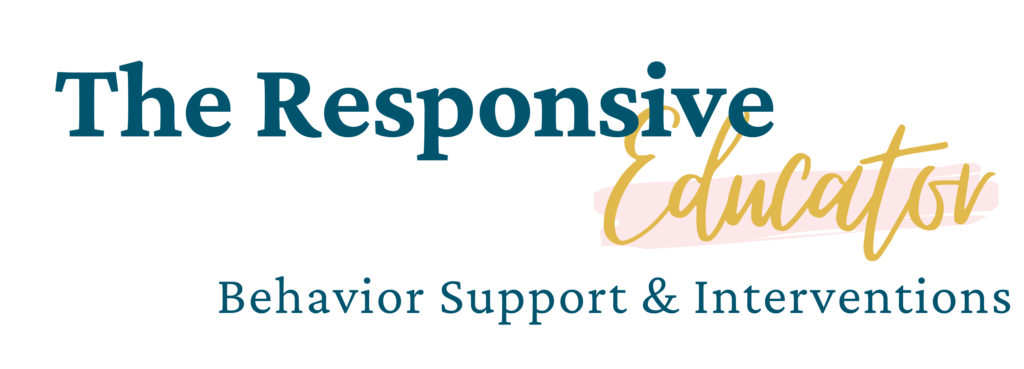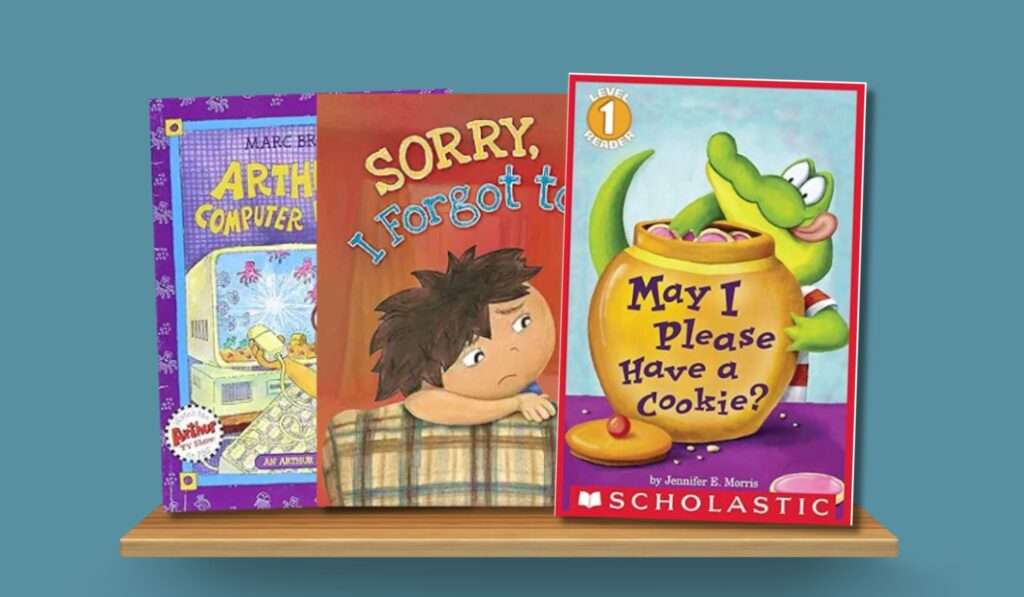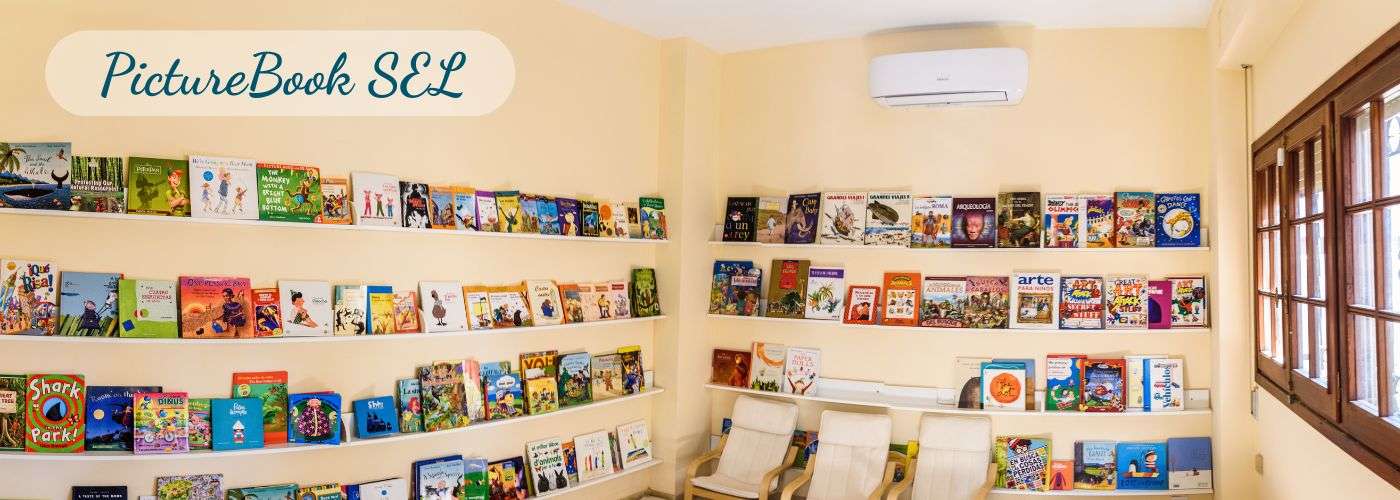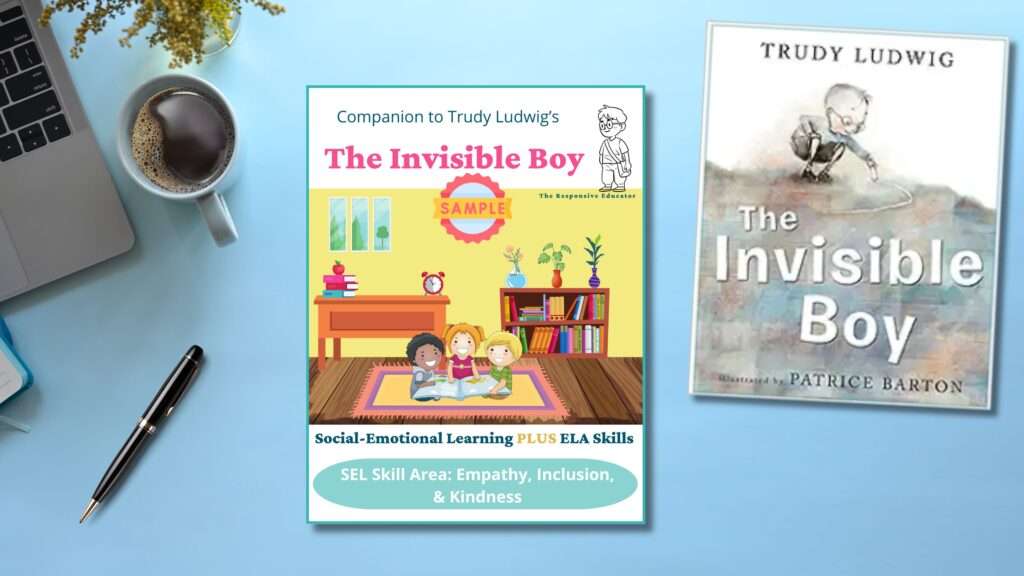


Teaching children to ask for permission is an important social skill that fosters respect, helps establish boundaries, and encourages consideration for others. The books below are thoughtfully crafted to help children grasp the importance of seeking permission and how to do so appropriately in different contexts.
While some of these books are particularly appealing to younger elementary-aged children, they can also be effectively used with older students, depending on their developmental stage and individual needs. These resources are especially useful in classroom settings for discussions about respect, boundaries, and proper social behavior. Although the suggested age ranges indicate when children may independently grasp the content, with the right guidance and discussion, these books can also be highly beneficial for those outside the typical age range.
For some of the books on this site, I’ve created interactive read-alouds designed to enrich their use in the classroom. These resources include discussion questions, activities, and prompts that actively engage students and deepen their understanding of key themes. More interactive read-alouds are on the way! If there’s a specific book you’d like to see included, please reach out using the contact form at the bottom of the page.
For more insights on supporting social-emotional learning (SEL) and incorporating interactive read-alouds into your teaching, explore these posts:
(As an Amazon affiliate, I earn a small commission if you purchase products through the links on my posts. Thank you for your support!)
Summary: In Arthur’s Computer Disaster, Arthur is eager to play his favorite computer game, even though his mother has strictly warned him not to use the computer while she’s away. When Arthur and his friend Buster disobey, they accidentally crash the computer. Panicked, Arthur must figure out how to solve the problem before his mom finds out. This relatable story explores themes of responsibility, listening to parents, and dealing with consequences.
Description: Arthur’s Computer Disaster is a humorous and engaging book that tackles the topic of disobeying parental instructions and the consequences that follow. When Arthur ignores his mom’s rule about not using the computer, things quickly go wrong. The book helps young readers understand the importance of listening to adults, taking responsibility for their actions, and problem-solving when things go awry. Marc Brown’s illustrations bring Arthur’s emotions and dilemmas to life, making the story highly relatable for children.
Reviews and Reflections: Reviews praise Arthur’s Computer Disaster for its relatable storyline and humorous take on a common childhood scenario. Parents appreciate the book’s focus on responsibility and dealing with the consequences of breaking rules. Many reviewers mention that the story is an excellent conversation starter about technology use, trust, and how to handle mistakes. The illustrations and engaging plot keep children entertained while delivering valuable lessons about accountability and problem-solving.

Summary: May I Please Have a Cookie? follows Alfie, a young alligator who loves cookies but needs to learn how to ask for them politely. Throughout the story, Alfie tries different tactics to get a cookie from his mom, but he soon realizes that saying “please” is the most effective and kind way to ask. This simple yet charming story teaches children the importance of good manners and politeness.
Description: May I Please Have a Cookie? by Jennifer Morris is an engaging and delightful story that introduces children to the concept of politeness and using good manners. As Alfie goes through several humorous attempts to get a cookie, children learn the value of asking politely and how saying “please” can lead to positive outcomes. With colorful illustrations and a gentle storyline, the book is perfect for young readers learning social skills and the importance of kindness.
Reviews and Reflections: Reviewers praise May I Please Have a Cookie? for its simple, relatable storyline and its valuable lesson on manners. Parents and educators appreciate how the book makes learning about politeness fun for young readers. The repetitive structure and bright illustrations keep children engaged while reinforcing the message of using kind words. Readers often mention that this book works well for preschoolers and early elementary children, making it a helpful resource for teaching everyday social interactions.

Summary: Please, Mr. Panda follows a grouchy panda who offers donuts to a variety of animals. However, only the animals who say “please” receive a treat. Through this playful story, children learn the importance of politeness and using the word “please” when making requests.
Description: Please, Mr. Panda by Steve Antony is a delightful story that emphasizes the value of good manners. The book’s repetitive structure and charming illustrations make it accessible for young readers, showing them how small acts of kindness, like saying “please,” can have a big impact. Mr. Panda’s interactions with the animals provide a gentle reminder about respect and politeness.
Reviews and Reflections:
Reviewers appreciate Please, Mr. Panda for its clear message about manners and its engaging illustrations. Many note that the simple, repetitive format makes it ideal for preschoolers, helping them grasp the concept of politeness easily. The humor and whimsical characters keep children entertained while reinforcing a valuable lesson about saying “please.”

Summary: In Sorry, I Forgot to Ask!, RJ, an impulsive young boy, often makes decisions without seeking permission, leading him into trouble. From using his dad’s computer without asking to walking home alone, RJ learns that his actions have consequences. Guided by his parents, RJ begins to understand that asking for permission is not just about following rules—it’s about being responsible and considering how his choices impact others. Along the way, he also learns how to make sincere apologies when needed.
Description: Sorry, I Forgot to Ask! by Julia Cook is a valuable resource for teaching children about responsibility, boundaries, and accountability. The book follows RJ as he navigates everyday situations where he forgets to ask for permission, illustrating the real-life consequences of his actions. Through gentle guidance from his parents, RJ realizes that asking for permission isn’t just a rule—it’s a way to show respect and consideration for others. The book also emphasizes the importance of making heartfelt apologies when mistakes are made, helping children understand how to mend relationships and take responsibility for their actions.
The engaging illustrations and relatable situations make this book an effective tool for sparking conversations about decision-making, personal responsibility, and the impact of our actions on others. Ideal for early elementary readers, it offers valuable social-emotional lessons in an approachable and engaging way.
Reviews and Reflections: Sorry, I Forgot to Ask! is praised for its clear, relatable storytelling and effective teaching of responsibility and asking for permission. Reviewers often mention how the book helps children understand real-life consequences in a gentle, non-judgmental way. The book’s practical examples resonate with both parents and educators, making it a useful tool in teaching accountability and the importance of sincere apologies. Many readers appreciate the engaging illustrations and how they help children connect emotionally with RJ’s experiences.
Bring new depth to your classroom lessons with the interactive read-aloud lesson plan for Sorry, I Forgot to Ask! by Julia Cook. This 100-page book companion features over 40 activities, providing 15-20 hours of engaging lessons that seamlessly integrate social-emotional learning (SEL) and English Language Arts (ELA) skills. The lesson plan includes a variety of discussion questions, activities, and prompts designed to help students understand the importance of asking for permission, respecting boundaries, and managing their emotions effectively.

Summary: Benjamin Bear Says Please follows Benjamin, a young bear who loves asking for things but often forgets to say “please.” Throughout the story, Benjamin learns the importance of using good manners, especially when asking for something. As Benjamin practices saying “please,” he realizes how much more pleasant it is when people respond positively to polite requests.
Description: Benjamin Bear Says Please by Claire Freedman is a charming story that introduces young readers to the concept of politeness and good manners. Through Benjamin’s journey, children learn that simple words like “please” can make a big difference in how others respond to requests. With colorful illustrations and a heartwarming storyline, the book helps young children understand the importance of kindness and respectful behavior.
This book serves as a great introduction to manners for early elementary readers, offering practical lessons in a fun and relatable way.
Reviews and Reflections:
Benjamin Bear Says Please is appreciated for its sweet, relatable message about politeness. Reviewers praise the book for its engaging illustrations and simple, clear lesson about using good manners. Many parents and educators note that the story is helpful in encouraging young children to use polite language in their daily interactions. The book’s lighthearted tone and relatable situations make it an excellent tool for teaching social-emotional skills in both home and classroom settings.

Summary: The Best Me That I Can Be: Respect teaches children the importance of respect through clear examples and practical scenarios. The book introduces situations where kids can show respect by listening, following rules, and treating others kindly. It also covers respecting personal belongings and understanding different viewpoints, helping children realize that respect is key to building positive relationships.
Description: This book is more of a teaching guide than a traditional storybook. Through easy-to-understand lessons, The Best Me That I Can Be: Respect provides practical tools for children to incorporate respect into everyday situations. From respecting peers to taking care of their own things, the book guides children in developing respectful behaviors and attitudes.
Reviews and Reflections:
Reviewers appreciate the book’s straightforward and relatable approach to teaching respect. Parents and teachers note that it opens up important conversations about behavior and social-emotional development, making it ideal for early elementary students. The book’s practical examples encourage children to apply respect in various aspects of their lives, both at home and in the classroom.

Sign up now to receive a free sample of “The Invisible Boy” Interactive Read-Aloud Lesson Plan! This comprehensive resource includes engaging activities designed to help your students develop empathy and inclusion.
By signing up, you will also join our newsletter, where you’ll receive:
Join our community of educators dedicated to fostering social-emotional growth in the classroom!

( ) = Coming Soon
Body Safety & Personal Boundaries
(Conflict Resolution)
(Compromise / Cooperating)
Feelings & Emotional Awareness
(Sensory Processing)
(Sharing)
(Speaking Politely)
(Teasing & Bullying)
(Trauma Recovery)